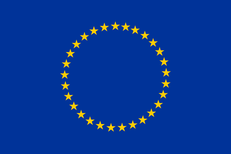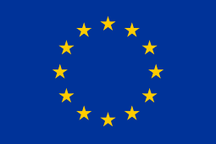|
On May 13, 2020, Czech Republic and Korea deposited their instrument of ratification for the Multilateral Convention to implement tax treaty-related measures to prevent base erosion and profit shifting (BEPS) with the OECD.
The move underlines their strong commitment to prevent the abuse of tax treaties and BEPS practices by multinational enterprises. For the Czech Republic and Korea, the MLI will enter into force on September 1, 2020. On May 20, 2020, the European Commission underlined key recommendations for six EU member states on how to curb aggressive tax planning.
The recommendations concern the following six member states: Cyprus, Hungary, Ireland, Luxembourg, Malta, and the Netherlands. Paolo Gentiloni, Commissioner for Economy, said: “The coronavirus pandemic and the necessary containment measures have dealt a brutal blow to Europe's economies. These recommendations reflect that unprecedented situation. So, as we look to the future, our investment and reform objectives must remain focused on making a success of the green and digital transitions and ensuring social fairness.” See Recommendations On 19 May 2020, the Philippine House of Representatives introduced House Bill No. 6765 to establish a fiscal regime for the digital economy.
The Bill would give effect to five key changes to the way the digital economy is currently taxed, to better capture value created into the tax system. In particular, the Bill requires that those who render digital services must do so through a resident agent or a representative office in the Philippines. The Bill also seeks to make “network orchestrators” and other similar services that link customers and providers withholding agents for income taxes, to ease their partners of the burden of having to pay their own taxes, while also encouraging tax compliance. The Bill responds to the increased urgency of finding new sources of revenue to find the country’s efforts to recover from the adverse impacts of COVID-19 and anticipates increasing digitization of the country’s economy. See House Bill No. 676 On May 12-13, 2020, the OECD held a virtual public consultation meeting on the 2020 review of the country-by-country (CbC) reporting requirement developed under Action 13 of the base erosion and profit shifting project.
The OECD had previously sought public comments on the 2020 Review of CbC reporting. The public consultation meeting focused on the key questions identified in the consultation document and raised in the written submissions received as part of the consultation process. The OECD has published videos of the public consultation meeting on its website. See Videos On May 11, 2020, the US Internal Revenue Service (IRS) announced certain modifications to procedures for filing of documents when making mutual agreement procedure (MAP) and advance pricing agreement (APA) requests.
Any documents requiring the taxpayer's signature may be submitted with either an image of the taxpayer's signature (scanned or photographed) or the taxpayer's digital signature created using encryption techniques to provide proof of original and unmodified documentation. Either form of signature is acceptable. All submissions may be filed electronically; paper copies are not required. With regard to questions about pending and executed APAs, the tax authority is actively discussing various substantive and procedural issues with treaty partners, including such technical issues as the application of transfer pricing methods in periods of economic distress and the impacts of current economic conditions on specific industries, types of taxpayer, regions, etc. See Announcement On May 8, 2020, the European Commission proposed to defer the deadlines for filing and exchanging information under the Directive on Administrative Cooperation (also known as “DAC6”).
Based on the proposed changes, member states will have three additional months to exchange information on financial accounts of which the beneficiaries are tax residents in another Member State. Similarly, member states will have three additional months to exchange information on certain cross-border tax planning arrangements. Depending on the evolution of the Coronavirus pandemic, the Commission proposes the possibility to extend the deferral period once, for a maximum of three further months. The proposed tax measures only affect the deadlines for reporting obligations. The beginning of application of DAC6 will remain July 1, 2020, and the reportable arrangements made during the postponement period will have to be reported by the time the deferral has terminated. See Press Release The governments of Liechtenstein and Ukraine have mutually decided to negotiate and enter into a tax treaty.
The decision was taken at a telephonic meeting held on May 5, 2020, between officials from both countries. The tax treaty would need to be signed and ratified by both countries before it can take effect. See Release On April 28, 2020, Indonesia ratified the OECD’s Multilateral Instrument to tackle base erosion and profit shifting (BEPS).
Indonesia intends to cover 47 of its tax treaties under the BEPS MLI. For Indonesia, the BEPS MLI will enter into force on August 1, 2020. On April 28, 2020, the Finnish tax authority published guidance on application of the country's law on reporting of cross-border tax arrangements (commonly referred to as 'DAC6').
The guidance covers the following areas: what is a reportable arrangement; what information must be reported; and when should the report be submitted. The tax authority noted that an electronic reporting channel will be opened in July 2020. Further guidance will be published over the coming months. See guidance |
Archives
March 2024
|
COMTAX ABC/o Ekonomiforetaget Baehring Dahl AB
Berga Alle 3 25452 Helsingborg Sweden |
CONTACTTel.: +46 46 590 07 70
E-mail: support(@)comtaxit.com |
INFORMATION |
© COPYRIGHT 1985 - 2024 COMTAX AB. ALL RIGHTS RESERVED.









